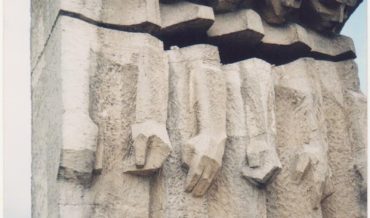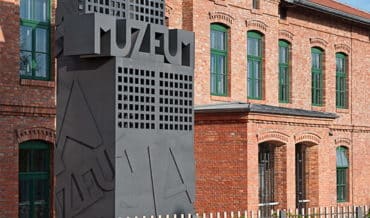Contents
- 1 Key Facts
- 2 Early Life and World War I Service
- 3 Interwar Military Career
- 4 World War II and the September Campaign
- 5 Leadership of Kedyw – The Resistance Years
- 6 Recognition and Promotion
- 7 Arrest and Soviet Persecution
- 8 Show Trial and Execution
- 9 Posthumous Recognition and Rehabilitation
- 10 Legacy and Commemoration
Key Facts
• Born in Krakow in 1895, executed in Warsaw in 1953
• Brigadier General of the Polish Army and head of Kedyw (Directorate of Diversion) of the Home Army Headquarters
• Served with distinction in the 1st Brigade of Polish Legions during World War I
• Commander of the 51st Infantry Regiment of Borderlands Riflemen during the 1939 September Campaign
• Used the pseudonym "Nil" during his resistance activities in occupied Poland
• Arrested by Soviet forces in 1945, executed on fabricated charges in 1953
• Completely rehabilitated in 1989 after the fall of communism
• Commemorated with a plaque in Krakow and symbolic tomb at Powązki Cemetery in Warsaw
Early Life and World War I Service
August Emil Fieldorf was born in Krakow on March 20, 1895, beginning a life that would be marked by unwavering dedication to Polish independence. His military career commenced during World War I when he enlisted in the legendary 1st Brigade of Polish Legions under Józef Piłsudski in August 1914.
Serving in the machine gun division, Fieldorf distinguished himself throughout the entire combat trail of the Legions, participating in key battles including the Battle of Kostiuchnówka in 1916. He steadily rose through the ranks to achieve the position of senior sergeant (starszy sierżant). His early military experience in trench warfare and machine gun tactics proved formative, instilling in him the tactical knowledge and leadership skills that would later make him one of Poland's most effective resistance commanders.
The Oath Crisis of 1917
The year 1917 marked a crucial turning point in Fieldorf's early career. Following the Oath Crisis of July 1917, along with many of his fellow legionnaires, he refused to swear allegiance to the Central Powers, demonstrating the principled stance that would characterize his entire military career. This act of defiance resulted in his internment at the Szczypiorno camp and later conscription into the Austrian army. Despite these hardships, his commitment to Polish independence remained unshaken, and he participated in the liberation of Krakow in October 1918, witnessing the city's historic center around the Main Square celebrate freedom once again.
Interwar Military Career
Following Poland's regaining of independence in 1918, Fieldorf continued his military service with distinction. During the crucial years of 1919-1921, he participated as a second lieutenant in the Polish-Soviet War, serving with the 1st Legions Infantry Regiment and fighting against the Red Army during this formative conflict that would determine Poland's eastern borders.
After the war, Fieldorf was stationed in Vilnius (then part of Poland as Wilno), where he remained active in the Polish Army while performing various command functions with the Corps of Internal Security (KOP – Korpus Ochrony Pogranicza). His steady rise through the military hierarchy reflected both his tactical acumen and natural leadership abilities. The interwar period allowed him to develop the organizational and strategic skills that would prove invaluable during the resistance years. Like other famous Polish people who dedicated their lives to their nation's independence, Fieldorf embodied the spirit of patriotic service that would define his entire career.
World War II and the September Campaign
By 1939, Fieldorf had achieved the rank of lieutenant colonel and was serving as commander of the 51st Infantry Regiment of Borderlands Riflemen (51 Pułk Strzelców Kresowych) stationed in Brzezany. When Germany invaded Poland on September 1, 1939, Fieldorf led his regiment with characteristic courage and determination during the September Campaign, participating in the battles of the Lwów defensive area.
Despite the heroic efforts of units like Fieldorf's, the simultaneous invasion by Nazi Germany on September 1 and the Soviet Union on September 17, 1939, sealed Poland's fate. Following the campaign's conclusion, Fieldorf faced the same difficult choices confronting many Polish officers: surrender, flee, or continue the fight from abroad.
Journey to France and Return to Poland
After the September Campaign, Fieldorf initially returned to Krakow before making his way through Hungary and Romania to France, where Polish forces were being reorganized under the Polish government-in-exile. His experience and leadership qualities were quickly recognized, leading to his promotion to colonel. However, rather than remaining safely abroad, Fieldorf made the courageous decision to return to occupied Poland in early 1941 to join the underground resistance.
He was subsequently assigned to the ZWZ Headquarters (Związek Walki Zbrojnej – Union for Armed Struggle, the predecessor to the Home Army) in Warsaw, where his expertise in military tactics and sabotage operations would prove invaluable to the developing resistance movement.
Leadership of Kedyw – The Resistance Years
Becoming "Nil"
Upon joining the underground resistance in 1941, Fieldorf assumed the pseudonym "Nil" and was appointed head of Kedyw (Kierownictwo Dywersji – Directorate of Diversion), the sabotage and special operations arm of the Home Army Headquarters. This position made him one of the most important figures in the Polish resistance movement, directly reporting to General Stefan Rowecki "Grot," the Home Army commander.
Under his leadership, Kedyw conducted numerous successful operations against German occupation forces during a period when the Nazis had established brutal control over Polish territory, including the creation of the Kraków-Płaszów concentration camp and the systematic persecution of Polish civilians. The operations included:
- Operation Arsenal (March 26, 1943) – the successful liberation of Home Army members from German custody
- Sabotage operations against German transportation networks, including railway lines crucial for Wehrmacht logistics
- Intelligence gathering for the Allied forces through the extensive Home Army network
- Training and coordination of resistance cells throughout occupied Poland via specialized schools
- Liquidation operations against German officials and Polish collaborators
Maintaining Cover
To maintain his cover while directing resistance operations, Fieldorf worked as a railway controller for the German-controlled railway system. This position provided him with valuable access to transportation networks and intelligence about German military movements, while simultaneously offering a plausible explanation for his frequent travels throughout occupied Poland to coordinate Kedyw operations.
During this period, the resistance operated in a city transformed by occupation, where areas like the former Krakow Ghetto served as stark reminders of Nazi brutality and strengthened the resolve of fighters like Fieldorf to continue their dangerous work.
The "Nie" Organization
In addition to his official duties with the Home Army, Fieldorf was deeply involved in establishing the secret civil and military organization known as "Nie" (meaning "No" in Polish) in 1943. This clandestine network was specifically designed to continue resistance operations in the event of Home Army dissolution due to Soviet occupation of Polish territory. The foresight demonstrated in establishing "Nie" proved prophetic, as Soviet intentions toward non-communist Polish resistance became increasingly clear following the Red Army's advance into Poland.
Recognition and Promotion
In September 1944, Fieldorf's exceptional service was recognized with his promotion to brigadier general by General Tadeusz Bór-Komorowski. He was also decorated with the Virtuti Militari (Silver Cross, 5th Class) and the Cross of Valour multiple times. These honors reflected not only his personal courage but also the remarkable effectiveness of the operations conducted under his leadership, which significantly disrupted German occupation efforts. His heroism exemplified the spirit that would later be commemorated during Poland's national holidays in Poland dedicated to honoring the nation's defenders.
Arrest and Soviet Persecution
The Milanówek Arrest
On March 7, 1945, tragedy struck when Fieldorf was arrested in Milanówek by NKVD forces during a routine document check. This arrest marked the beginning of an eight-year nightmare that would ultimately cost him his life. Initially identified under his false papers as "Jan Zajączkowski," his true identity was eventually discovered through Soviet interrogation methods.
Deportation to Soviet Gulags
Following his arrest, Fieldorf was transported to Soviet labor camps in the Komi ASSR region, passing through the notorious Vorkuta camp complex. The harsh conditions and brutal treatment in these camps were designed to break the spirit of Polish patriots who refused to accept Soviet domination of their homeland. Despite years of imprisonment, Fieldorf maintained his dignity and refused to collaborate with his captors.
Return and Final Arrest
After several years of imprisonment, Fieldorf was released in 1947 and returned to Poland under close surveillance. Using false documents, he initially evaded detection and attempted to rebuild his life. However, his identity was eventually discovered by the UB (Urząd Bezpieczeństwa – Security Office) in 1950, and he was arrested once again by the communist security apparatus.
Show Trial and Execution
Fabricated Charges
Fieldorf was imprisoned and sentenced to death on December 16, 1952, on fabricated charges related to the alleged murder of Soviet partisans and members of the communist People's Army (Armia Ludowa) and People's Guard (Gwardia Ludowa) during the years 1942-1944. These charges were part of the communist government's systematic campaign to eliminate Home Army leaders and retrospectively justify Soviet control over Poland by portraying the non-communist resistance as "fascist collaborators."
Historical Context of the Charges
The charges against Fieldorf reflected the complex reality of occupied Poland, where multiple resistance groups sometimes came into conflict due to ideological differences and competing visions for post-war Poland. While the Home Army, loyal to the London-based Polish government-in-exile, did occasionally clash with communist-controlled partisan groups that took orders from Moscow, the specific allegations against Fieldorf were largely fabricated. Historical research has shown that most purported "liquidations" attributed to him never occurred or were legitimate military actions against German collaborators.
The reality of occupation was witnessed throughout Poland, including in places like Schindler's Factory, where the complexity of wartime survival and resistance created situations that communist prosecutors would later distort for political purposes.
Execution in 1953
August Emil Fieldorf was executed by shooting in Mokotów Prison, Warsaw, on February 24, 1953, becoming one of many victims of Stalinist persecution in post-war Poland. His body was buried in an unmarked grave, the location of which remains unknown to this day. His death represented not only a personal tragedy but also the systematic destruction of Poland's wartime heroes by the communist regime.
Posthumous Recognition and Rehabilitation
Early Recognition Efforts
Even during the communist period, there were quiet attempts to acknowledge Fieldorf's genuine contributions to Polish independence. A symbolic tombstone was erected at Powązki Cemetery in Warsaw, though official recognition remained impossible under the Stalinist system.
Complete Rehabilitation in 1989
The fall of communism in Poland brought with it a comprehensive reckoning with the injustices of the previous regime. On September 25, 1989, by decision of the Prosecutor General, A. E. Fieldorf "Nil" was completely rehabilitated. The Supreme Court ruling officially acknowledged what historians and patriots had long known: that Fieldorf was a hero who had been falsely accused and unjustly executed. In 1995, he was posthumously promoted to the rank of General.
Legacy and Commemoration
Memorial in Krakow
In Krakow, where Fieldorf was born and began his journey of service to Poland, there is a commemorative plaque at ul. Krupnicza 42 marking his birthplace. This memorial serves as a reminder of the city's connection to one of Poland's most distinguished military leaders and ensures that future generations will remember his sacrifice. The location is not far from Krakow's historic Old Town, where visitors can explore the rich heritage of this remarkable city that produced such heroes.
Modern commemorative efforts in Krakow also include the Home Army Museum, which features extensive exhibits dedicated to Fieldorf's life and the Kedyw operations he commanded. Other cultural institutions such as the National Museum and the Historical Museum of Krakow preserve the memory of the resistance period through their collections documenting wartime Poland.
National Recognition
Streets, schools, and military units across Poland now bear Fieldorf's name. The 6th Airborne Brigade of the Polish Army adopted "Nil" as their honorary name in 2001. Educational curricula include his story as part of Polish resistance history, and numerous historical publications have detailed his contributions to the fight for Polish independence.
Visitors to Krakow can also explore military history at institutions like the Armed Deed Museum and the Tadeusz Kościuszko Museum, which honor Polish military traditions that Fieldorf embodied. The historic Barbican stands as a testament to the city's defensive heritage, symbolizing the same spirit of resistance that Fieldorf demonstrated during the occupation.
Historical Significance
August Emil Fieldorf's life story embodies the tragic yet heroic history of 20th-century Poland. From his service in the Legions fighting for independence, through his leadership of one of Europe's most effective resistance organizations against Nazi occupation, to his ultimate persecution by the communist regime, Fieldorf's biography reflects the struggles of an entire generation of Polish patriots.
His story also illustrates the complex moral landscape of occupied Europe, where the fight for freedom often involved difficult choices and tragic consequences. The fabricated nature of the charges against him serves as a stark reminder of how political narratives can distort historical truth and how totalitarian regimes systematically eliminate their opponents through judicial murder.
Modern Research and Documentation
Contemporary historians, particularly those associated with the Institute of National Remembrance (IPN), continue to research and document Fieldorf's contributions to Polish independence. Their work has conclusively demonstrated the falsity of the charges against him while highlighting the remarkable effectiveness of the Kedyw operations under his command, which significantly hampered German occupation efforts and saved countless Polish lives.
Today, August Emil Fieldorf "Nil" is remembered as one of the most effective and principled leaders of the Polish resistance. His tactical expertise, moral courage, and unwavering commitment to Polish independence have earned him a place among the nation's greatest military heroes. The rehabilitation of his reputation represents not only justice for Fieldorf himself but also a broader acknowledgment of the injustices suffered by many Polish patriots during the communist era.
Visitors exploring Krakow's rich history can appreciate the full context of Fieldorf's legacy by visiting landmarks such as Wawel Castle, which represents the royal heritage and independence traditions that inspired generations of Polish patriots like Fieldorf to sacrifice everything for their nation's freedom.
Sources and Further Reading:
- Institute of National Remembrance (IPN) Archives and Publications
- Polish State Archives, Military Records
- Home Army Museum, Krakow – Fieldorf Collection
- "August Emil Fieldorf 'Nil'" by Czesław Czapliński (Warsaw: Czytelnik, 1993)
- "Kedyw Okręgu Warszawskiego AK" by Wacław Zagórski (Warsaw: PAX, 1971)


